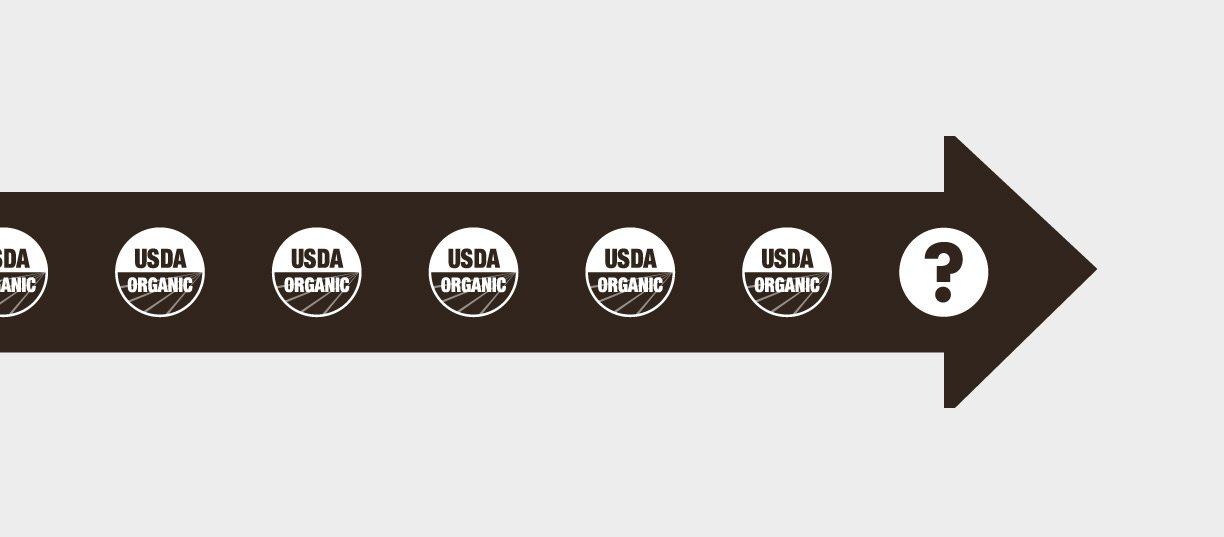Organic Food is Normal Food
For those of you who love food as much as I do, you've probably noticed that their are a lot of different labels for “healthy” food. There’s the vegetarian, gluten free, and paleo varieties; low-carb and diet; processed vs. fresh; local, non-GMO, and a million more.
There there is a dizzying amount of info out there about which types of food you should eat, which you shouldn't. Each of the labels I mentioned with its own library worth of books discussing its merits for our health, for animals, or for the planet. Some of it based on indisputable facts. Some based on loose science. Some just based on personal philosophy. All of it, though, is really confusing.
Among them all there is one label that may be the most confusing: organic.
You see, while all the other labels I mentioned can be traced back to a specific movement, philosophy, or diet trend, organic is the only label that really just means you're buying normal food.
What do I mean by normal food?
Well, for starters organic has been around since the beginning of eating millions of years ago. If that’s hard to picture, let's fast forward to the G.I. Generation—the first generation of the 20th century. They grew up eating organic food because the alternative didn't exist yet. What we now mistakingly call "conventional" food was actually invented in the 1940s as a way to turn farms into production facilities that looked more like factories. So technically, it was baby boomers—the G.I. Generation’s kids—that were the first generation NOT raised on organic food.
Why do we label normal food "organic"?
You'd think we'd label all non-normal foods instead. However, when we started adding synthetic, man-made, non-food-like, and often toxic substances to our food, for some reason we didn't foresee any problems. Since factories and chemicals helped us win World War II, why not put those same factories and chemicals to use in our food system? This blind optimism toward efficiency and productivity resulted in chemical foods as the default instead of the exception. In turn, people who wanted normal food needed to have some way of identifying it from the now "conventional" food, and the organic movement started.
If we know conventional food isn't normal food, why do we keep making it?
Money. Right now there is more money to be made selling cheap, artificial foods with high margins than there is in selling normal food. That's partly because of subsidies given to conventional farmers that keep crops that are used in artificial food at a cheaper price. It's partly because Americans got used to paying more for health care than they do for food, and now they think the true cost of food is too expensive. It's partly because we've gotten lazy about cooking for ourselves and we demand more convenient foods, which are often scienced-up to lengthen shelf life and shorten prep time. The issue: what we may gain in time-savings and accessibility, we pay for in terms of human health and environmental degradation. Ultimately, conventional food is still ubiquitous because we choose to keep buying it.
What the heck is my point?
My point is that organic food is simply normal food. It's not some crazy new trend for hippies, or health nuts. It's what all living things have eaten since the beginning of time—until we recently screwed up our food system. It's not some freaky, bland, health food experiment. It's food that’s free of strange non-food-like chemical substances. It's not some cheap calorie source meant to mimic food just enough to taste good and fill you up. It's the real thing that artificial flavors and ingredients are attempting to replicate. So if you like food as much as I do, and I mean real, normal food, you might want to look for that organic label, because even though it's confusing, it's the only label that reminds us to get back to the normal stuff. The good stuff.

